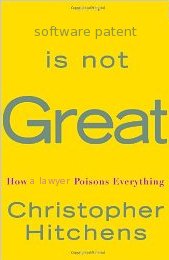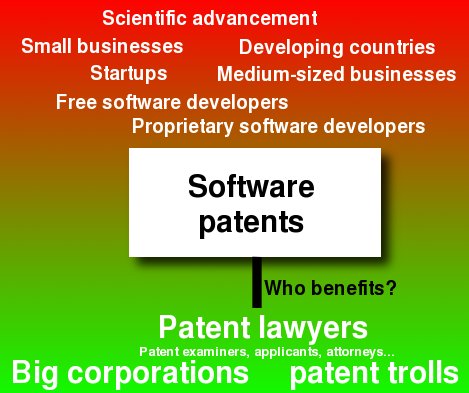12.29.10
Posted in Courtroom, Microsoft, Vista, Vista 7, Windows at 4:56 pm by Dr. Roy Schestowitz

Summary: Microsoft’s faking of Windows sales numbers and abuse of customers who buy a computer with an unwanted operating system lands it in hot legal waters
Microsoft has reportedly just been sued (hard to corroborate with other sources) for the Vista and Vista 7 abuse which we covered here before. To quote the short report from today:
A federal class action claims Microsoft illegally requires consumers to buy a more expensive Windows Vista or Windows 7 program, before they get “downgrade rights” to buy the Windows XP Professional operating system.
Someone from IBM has claimed that those who choose Windows XP (since around 2007) will have their purchase count as two Vista/Vista 7 sales. Not one sale of XP. Not one sale of Vista/Vista 7 but two. He called it “dipping” and it’s one of the tricks Microsoft uses to produce fake numbers, in addition to financial cheats.
Chips B. Malroy has just given us the pointer to it and he adds that he “can’t find any more information on that lawsuit” (if someone can, please alert us in comments/IRC). █
Permalink
 Send this to a friend
Send this to a friend
12.20.10
Posted in Courtroom, Microsoft, Oracle, Patents, RAND, Red Hat at 2:53 am by Dr. Roy Schestowitz

Summary: The European Interoperability Framework does not go far enough to serve as a bridge between free/libre applications and this helps Microsoft
THE question about software patents can determine winners and losers. It’s a battle which takes place in the courts rather than the markets and it’s not over yet. The most recent Red Hat USPTO/SCOTUS news helped show the company’s great interest in the outcome and here is further news coverage of that:
A group of US companies including Red Hat, Yahoo, eBay, Electronic Arts, General Motors and HP, have joined together to challenge a recent ruling by the U.S. Court of Appeals for the Federal Circuit, which threatens to seriously exacerbate problems in the already highly controversial software patent system within the United States.
The group has filed a brief with the U.S. Supreme Court seeking correction of the standard for inducing patent infringement, relating to the case of Global-Tech Appliances, Inc v. SEB S.A. Under the existing ruling, the Court of Appeals held that organisations and individuals can be held liable and prosecuted for infringing patents of which they have no knowledge. It used a standard of “deliberate indifference,” which it then equated to negligence.
[...]
The Supreme Court challenge is likely to be scheduled for sometime this spring.
Red Hat employees have commented on EIFv2 (we’ve asked them for feedback and received some) and Red Hat’s Mark Bohannon also put his output in Red Hat’s official Web site. Yesterday we showed that he put it in another site (Spanish translation), unless Red Hat put it there for him.
Richard Adhikari writes about the subject for ECT and gathers comments from various stakeholders:
The European Union has announced public procurement rules for technology that appear to favor open source.
The European Interoperability Framework sets out interoperability standards to create a trusted information exchange between public administrations of member countries.
The EIF encourages open specifications for the framework.
Members of the Business Software Alliance, which offer proprietary software, are apparently contesting this provision.
The announcement of the EIF is the another step in a years-long process.
“The EU’s work in this area has been going on since at least 2000, when OpenOffice.org was named as the preferred word processor for Denmark’s government,” Bill Roth, executive vice president at LogLogic, told LinuxInsider.
The European Parliament’s press office did not respond to requests for comment by press time.
In “Trond’s Opening Standard” (Oracle blog, not Oracle’s statement though) it is asked whether EIFv2 is “a new beginning” and the opening goes like this:
The most controversial document in the history of the European Commission’s IT policy is out. EIF is here, wrapped in the Communication “Towards interoperability for European public services”, and including the new feature European Interoperability Strategy (EIS), arguably a higher strategic take on the same topic.
Leaving EIS aside for a moment, the EIF controversy has been around IPR, defining open standards and about the proper terminology around standardization deliverables. Today, as the document finally emerges, what is the verdict?
Let us remember that Oracle uses patents offensively, notably in the Oracle vs. Google case that Groklaw continues to cover.
Groklaw quotes a page which is no longer accessible at the old address but can still be found here. Citing this letter [PDF] it says that “[p]atents do not give protection to inventive small businesses because they are impossible to enforce” (not news).
“A false assumption is made that an SME holding a patent will have ‘protection’ for their related investment in R&D and any resultant innovation,” the letter says.
This whole debate matters because the law is increasingly discriminatory in the sense that it discourages the small person with the small business. As Microsoft fails to make new products stick, it is turning further into the realms of patent trolling as white-collar racketeering company [1, 2, 3, 4, 5, 6, 7]. A new blog post titled “Microsoft patent chief: 2010 was a significant year of invention” led Groklaw to saying: “Uh oh. Writers call that foreshadowing. From the blog: “Patents will continue to play a key role in fostering technologies that enable interaction with people in new, unexpected ways. Our commitment to world-class creativity and invention in computer science and our R&D investment will enable Microsoft to continue setting the standard for patent quality in the technology industry.” That means they want you to pay them.”
To quote directly from the blog post:
…Microsoft Chief Patent Officer Bart Eppenauer notes in a blog post that 2010 will “go down in history as a significant year for creativity and invention at Microsoft.”
When they say “invention” they means patents, which EIFv2 allows them to embed inside formats and protocols (e.g. OOXML and FAT, respectively), in order to marginalise software freedom and competition from the likes of Red Hat. █
Related posts:
- European Open Source Software Workgroup a Total Scam: Hijacked and Subverted by Microsoft et al
- Microsoft’s AstroTurfing, Twitter, Waggener Edstrom, and Jonathan Zuck
- Does the European Commission Harbour a Destruction of Free/Open Source Software Workgroup?
- The Illusion of Transparency at the European Parliament/Commission (on Microsoft)
- 2 Months and No Disclosure from the European Parliament
- After 3 Months, Europe Lets Microsoft-Influenced EU Panel be Seen
- Formal Complaint Against European Commission for Harbouring Microsoft Lobbyists
- ‘European’ Software Strategy Published, Written by Lobbyists and Multinationals
- Microsoft Uses Inside Influence to Grab Control, Redefine “Open Source”
- With Friends Like These, Who Needs Microsoft?
- European Interoperability Framework (EIF) Corrupted by Microsoft et al, Its Lobbyists
- Orwellian EIF, Fake Open Source, and Security Implications
- No Sense of Shame Left at Microsoft
- Lobbying Leads to Protest — the FFII and the FSFE Rise in Opposition to Subverted EIF
- IBM and Open Forum Europe Address European Interoperability Framework (EIF) Fiasco
- EIF Scrutinised, ODF Evolves, and Microsoft’s OOXML “Lies” Lead to Backlash from Danish Standards Committee
- Complaints About Perverted EIF Continue to Pile Up
- More Complaints About EIFv2 Abuse and Free Software FUD from General Electric (GE)
- Patents Roundup: Copyrighted SQL Queries, Microsoft Alliance with Company That Attacks F/OSS with Software Patents, Peer-to-Patent in Australia
- Microsoft Under Fire: Open Source Software Thematic Group Complains About EIFv2 Subversion, NHS Software Supplier Under Criminal Investigation
- British MEP Responds to Microsoft Lobby Against EIFv2; Microsoft’s Visible Technologies Infiltrates/Derails Forums Too
- Patents Roundup: Escalations in Europe, SAP Pretense, CCIA Goes Wrong, and IETF Opens Up
- Patents Roundup: Several Defeats for Bad Types of Patents, Apple Risks Embargo, and Microsoft Lobbies Europe Intensely
- Europeans Asked to Stop Microsoft’s Subversion of EIFv2 (European Interoperability Framework Version 2)
- Former Member of European Parliament Describes Microsoft “Coup in Process” in the European Commission
- Microsoft’s Battle to Consume — Not Obliterate — Open Source
- Patents Roundup: David Hammerstein on Microsoft Lobbying in Europe; Harrison Targets Lobbying on Software Patents in New Zealand, Justice Stevens Leaves SCOTUS
- Oracle Doesn’t “Go Bananas Over EIF 2.0” Being Subverted by Microsoft and Friends
- Inaction From Ombudsman/EU Commission Regarding Microsoft Lobbyists Derailing Public Policy
- The Difference Between Florian Müller and Hugo Lueders (Pro-Microsoft Lobbyists)
- BSA, ACT, and Other Microsoft Front Groups Still Try to Shoot Down EIF in Europe While Promoting Software Patents
- Free Software Proponents Expose the Microsoft-Funded (F)RAND Lobbyists and Their Lies, Microsoft to Lobby Directly in SOSOCON 2010
- Battling the BSA Hydra – Interpretation and Spanish Translation
Permalink
 Send this to a friend
Send this to a friend
11.20.10
Posted in Courtroom at 7:27 am by Dr. Roy Schestowitz

Summary: In his censorship rampage, Wayne Crookes tries to make the linking to articles he does not agree with grounds for defamation
“I didn’t know if you’d heard about this Canadian law suit,” wrote to us one member of Techrights. “I couldn’t remember reading anything about it on Techrights. Anyway, it seems serious, so I thought I’d send it, just in case…maybe a mention of this law suit on Techrights will get more folks to help out.
“Here’s the link and an excerpt from the p2pnet article:
…The scales of justice aren’t balanced by what’s right and fair. They’re balanced by how much money a given party can drop onto them. And I don’t have enough money to get there and back.
I’m not exaggerating when I say the case is the most important in the history of the internet in Canada because if Crookes wins, there won’t be an internet in Canada.
“We’ve pointed in the past to some rather ridiculous situations in Canada concerning libel law”, said Mike Masnick on TechDirt, recently, going on >>>
One key case involved a guy named Wayne Crookes, who not only sued major internet sites like Google, Yahoo, Wikipedia and MySpace for hosting content he believed to be defamatory towards himself, but he also sued Jon Newton of the site P2Pnet.net for merely linking to the content Crookes believed to be defamatory. A court in Canada eventually ruled that merely linking to potentially defamatory material is not defamation, and an appeals court agreed. Last I heard, the case had moved up to the Canadian Supreme Court.
Mike Masnick (TechDirt) and myself (Techrights) received similar threats, so this is relevant to us. More formal details can be found here. Do not let bullying and crooks silence or impede speech. We gave an example earlier today. █
Permalink
 Send this to a friend
Send this to a friend
11.15.10
Posted in Courtroom, Finance, Law, Linspire, Patents at 1:15 pm by Dr. Roy Schestowitz

Summary: Linspire case ends up with very high legal expenses and this leads to a discussion which can be generalised to account for patent litigation
SWEEPING statements are risky as they contribute towards alienation and sometimes elimination of friends (or potential friends) and controversial topics are rarely brought up as they too are divisive. But for readers of this site who are patent lawyers and have stayed with us thus far, the twist above (around Christopher Hitchens’s book) will probably not be a shocker.
Techrights has claimed on nearly thousands of occasions and in about 100 posts that inertia for the broken (overburdened) patent system comes from patent lawyers, who benefit directly from increased bureaucracy and “lawyer time” (pay is usually clocked). The more messy the system, the more such lawyers (patent lawyers in particular) will be required and the more money they will extract from people who actually create things of value to society.
The reason we bring this up again is that there’s news from Linspire and it’s another episode in the drama of litigation [1, 2, 3], where Michael Robertson (head of Linspire/Lindows) is forced to pay $300,000+ to a former employee. Now, watch where most of this money is going:
For those of you following the case of Michael Robertson’s insane attacks on former Linspire employees, you will be interested in the latest development from the court today…
One of the former Linspire employees that Robertson attacked was the Controller. This employee (along with several others) was vindicated of all counts in September. Because the Controller had a contract dispute with Robertson, attorney fees are usually awarded, but of course Robertson fought paying. Today, the court awarded the Controller and his lawyer $215,000 in legal fees and $22,958 in prejudgement interest. The Judge also affirmed the jury’s damages judgement of $72,500, to be paid by Robertson (Linspire) to the Controller. This means that Robertson will have to pay over $300,000 to just this one employee for his failed attempts in attacking him in the courts. You can read the ruling here. (This is the tentative ruling which was affirmed in court today by Judge Taylor.)
We thought it was a good example of how this sick legal system operates. It’s a system which puts financial burden on those involved, including companies that are accused of patent litigation. In this case, Linspire helps make lawyers richer and thus stronger (e.g. in lobbying). In such cases, the lawyers have nothing to lose, only their clients do. Someone should pass this message/memo to the likes of Judge Rader, who still fails to acknowledge that this is a major problem when it comes to patents too. Let’s work on improving science and expanding the scope of knowledge rather than suing each other. Many disputes can be resolved outside the courts and elimination of weaponry like patents would help increase productivity. Just watch what the Cold War did to the Soviets (and to a lesser degree to the United States). They could produce a lot of warheads (enriching the Military Industrial Complex, analogous to houndish — trigger-happy lawyers), but could not take good care of their own population. █
“In the 20th century, the pace of technological developments increasingly became tied into a complex set of interactions between Congress, the industrial manufacturers, university research, and the military establishment. This set of relations, known more popularly as the “military-industrial complex,” emerged because the military’s unique technological demands, concentration of funding, large scale application, and highly centralized control played a dominant role in driving technological innovation. Fundamental advances in medicine, physics, chemistry, computing, aviation, material science, naval architecture, and meteorology, among other fields, can be traced back to basic and applied research for military applications.” –Wikipedia
Permalink
 Send this to a friend
Send this to a friend
11.11.10
Posted in Courtroom, GNU/Linux, Google, Microsoft at 5:18 am by Dr. Roy Schestowitz

Summary: Microsoft litigation against Linux (not just via proxies like SCO and maybe Acacia) is chosen as a principal route by this company that cannot compete and whose biggest investors are bailing out
JUDGING by Microsoft’s behaviour alone (never mind the layoffs, dead products, departing managers, etc.), Microsoft is in serious trouble. It’s SCO’s successor. Its market presence with Windows and Office is the only thing which really keeps it going for the time being (same with few of SCO’s remaining deployments), and that too is an eroding market where Microsoft relies on chasing poor people (whom it labels “pirates”).
“BlackRock cuts Microsoft stake below 5 percent,” alerts Reuters.
BlackRock (BLK.N), one of the biggest holders of Microsoft Corp (MSFT.O) shares, has cut its stake in the software company below 5 percent, according to a regulatory filing on Tuesday.
As another headline put it (all caps), “BLACKROCK AND STEVE BALLMER ARE SELLING MICROSOFT SHARES, SHOULD YOU? (BLK,MSFT)”
BlackRock (NYSE:BLK), which is one of Microsoft’s (NASDAQ:MSFT) largest shareholders, cut its stake to below 5%, just days after Steve Ballmer sold 50 million shares of the company.
Chips B. Malroy gave us those two links along with some insights last night, quoting the above as saying: “At the end of last quarter, BlackRock’s major units held about 470 million Microsoft shares, according to Thomson Reuters data, about 5.5 percent of the company.”
“Just like the CEO of Microsoft, Steve Ballmer,” argues Malroy, “BlackRock has no expectations of MS stock rising. In fact, this next link maybe the reason for all the selling.”
“Just like the CEO of Microsoft, Steve Ballmer, BlackRock has no expectations of MS stock rising.”
–Chips B. MalroyTo put some of these recent developments in context, Ballmer will possibly lose his job if he does not manage to keep up and catch up with the mobile market. He joked about it about a month ago and last week we started urging for people to share sales figures of Vista Phony 7 [sic], where Silverlight came to die. Just as we wrote some days ago, they refused to give numbers, which was indicative of failure because they always brag when they can.
Well, we finally have some numbers regarding Vista Phony 7 [sic] sales. It’s looking pretty ugly. The Inquirer‘s headline says that “Microsoft is failing to shift many Windows Phone 7 handsets” (just as The Inquirer claims to have predicted).
Over here in Blighty, Microsoft and mobile operators have been cagey about releasing sales figures, making vague statements about “strong demand” that did nothing to quell speculations that WP7 hasn’t got off to a rousing start. The 40,000 handsets that Microsoft apparently has sold in the US in the first 24 hours are a sign that even after the Vole spent hundreds of millions of dollars on marketing, punters are simply not buying into the hype.
“Market researchers claim that the Vole’s WP7 handset partners have managed to flog only 40,000 WP7 smartphones during the first 24 hours on sale in the US,” Malroy quotes it as saying. He adds: “So is the WP7 to become the “next of Kin?” Or rather, the next Kin.”
One of the original reports with the number can be found here (“Microsoft Sells 40K Windows 7 Phones”). It says that:
The anemic sales number does not include the 89,000 Microsoft employees that will be given free Windows 7 phones.
Vista Phony 7 [sic] is doing pretty poorly and “Microsoft reps declined to comment,” according to the article. Anything they say would help verify the embarrassing reports. To put things in perspective, Google (Android’s nearly sole maintainer) activates 5 times more Linux phones than Microsoft does upon hyped-up product launch. How many units per day ship with Vista Phony 7 [sic] after this launch? Could it be less than 10,000 a day? That’s quite likely. The few people who bought “KIN” (just 503 people according to Gruber) are sometimes getting rid of them on eBay. Is Vista Phony 7 [sic] too going the way of the dodo (“KIN”) within years? Microsoft made a big bet on it by giving it to all of its employees (for internal use, so Silverlight may now be required for internal use too). One has to remember that Vista Phony 7 [sic] users are Microsoft employees a lot of the time. Microsoft seems to have also made some deal with Dell. Few other companies would adopt such an immature product because, as IDG helps show, a platform being “Windows”-labeled is not expected to be secure, either.
Many businesses will not be able to support Microsoft’s Windows Phone 7 operating system, which began shipping in the United States today. Like the competing Google Android, Windows Phone 7 does not support on-device encryption to protect data stored on it. Many businesses require such encryption to be able to access corporate data through EAS (Exchange ActiveSync) policies and automatically block connections from devices that don’t support device-level encryption.
Users will get the error code 85010013 when trying to sync their email on a Windows Phone 7 device, rather than an English description of the problem. Microsoft’s support forum confirms the lack of on-device encryption support.
So, just like Swiss cheese, Windows would not be what it is without lots of holes. The ‘secure’ Wi-Fi is simply flawed in Vista Phony 7 [sic]:
A flaw possibly linked to Windows Phone 7 itself may be preventing devices from connecting to secure Wi-Fi points, new owners have discovered since launch. Those trying to reach a locked network are told they “couldn’t reach the Wi-Fi network” even when using a known good password. The issue doesn’t appear confined to one device and has affected at least the Dell Venue Pro and HTC HD7, BGR has heard.
This makes Vista Phony 7 [sic] unsuitable for many business-oriented uses. What’s left for it to go after? Any niche at all? Probably not.
“Microsoft employees can meanwhile use yuppie-Nuremberg defense to justify extorting the competition.”Microsoft has a Plan B however. If it cannot make something which works, then it wishes to make money from other companies’ products (which do work). Continuing its tradition of extortion (Horacio and his thugs can just sue more), Microsoft recently initiated two lawsuits against Motorola. Microsoft tries to make this company along with other companies surrender and pay Microsoft for Linux without even a challenge. It’s racketeering [1, 2, 3, 4, 5, 6, 7].
Some would conveniently try to label Microsoft a “patent troll”, but as long as Microsoft delivers a mobile platform — no matter how useless it is — Microsoft can’t be called “patent troll” due to these cases of aggression while extorting Android phone makers. Microsoft employees can meanwhile use yuppie-Nuremberg defense to justify extorting the competition. There’s no good excuse for such a behaviour.
“While it might be too early to tell if WP7 is the complete failure like Kin was,” argues Malroy, “the rumors coming out seem to support this. Could this be why Steve Ballmer and BlackRock are selling shares off? After all, Steve Ballmer already knows the WP7 sales figures from Europe, which he is not sharing with the world. But he is dumping stock. As WP7 maybe starting to fail in a big way, Microsoft turns to more legal action. And Motorola countersues MS:”
The lawsuit comes just a day after Microsoft filed its second lawsuit against Motorola in recent months. Last month, Microsoft took aim at Motorola for the alleged infringement of nine patents in Motorola handsets that use Google’s Android mobile software. On Tuesday, Microsoft filed suit against Motorola over licensing terms for technology Microsoft uses in its Xbox game machines.
Motorola Mobility filed the current lawsuit in the U.S. District Courts for the Southern District of Florida and the Western District of Wisconsin, it said in a statement Wednesday. The patents are related to a number of technologies, including digital video coding, e-mail technology including in Exchange, Messenger and Outlook, and Windows Live instant messaging software. Motorola also directly attacked the Xbox patents in question in the recent Microsoft case, which are related to video coding and Wi-Fi technology.
“Since WP7 cannot compete with Android based on Linux kernel,” says Malroy, “MS sues companies that use Android like Motorola. Clear sign of the coming end for Microsoft when a company is desperate and cannot compete. This lawsuit is most likely MS attempting to apply more pressure on MS to settle on using Android and pay MS. Which resulted in Motorola counter suits. Motorola is not going away quietly. Is this all that Ballmer and Microsoft have, lawsuits because they cannot compete and turn out products that sell without monopoly power?”
Wayne Borean’s ongoing roundup called “Microsoft Death Watch” is now accumulating evidence from Business Insider and it includes the news about Vista Phony 7 [sic]:
So if Microsoft only sold 40,000 phones on the first day, it’s quite possible that Windows Phone 7 is going to be a flop. There are also rumors of stores that sold out however. Whether this is because of limited stock, or because of higher interest in some areas, we don’t know. A final rumor was that there have been shortages of touch screens, and that this may have affected launch stock.
So to summarise, as long as Vista Phony 7 [sic] is around, Microsoft cannot be called a “patent troll”, but it’s clear that litigation against rivals is Microsoft’s plan for the future. It’s all about software patents and the only ones which are named correspond or refer to FAT, which should give Mono a clue. Microsoft APIs are an Achilles heel and ActiveSync too is an example. We’ll expand on Mono in the next post. █
“That’s extortion and we should call it what it is. To say, as Ballmer did, that there is undisclosed balance sheet liability, that’s just extortion and we should refuse to get drawn into that game.”
–Mark Shuttleworth
Permalink
 Send this to a friend
Send this to a friend
Posted in Courtroom, GNU/Linux, Microsoft, Novell, SCO at 3:40 am by Dr. Roy Schestowitz

Summary: Microsoft’s little helper, SCO, refuses to die just yet as it’s playing the legal system
Was SCO’s bankruptcy in 2007 a fake one? Some say that SCO uses it as a strategic tool with which to buy more time to attack Linux and increase uncertainty. SCO is repeatedly delaying bankruptcy hearings and even the latest one gets cancelled again and again. Groklaw is not especially surprised anymore:
Well, knock me over with a feather. I surely didn’t expect this. SCO’s hearing in bankruptcy court in Delaware set for November 8 has been cancelled/postponed.
Groklaw has some other posts about the case [1, 2, 3], which carries on because SCO manages to scrape funds off mysterious places (whilst decreasing staff size). █
Permalink
 Send this to a friend
Send this to a friend
Posted in Courtroom, GNU/Linux, Microsoft, Novell, Patents, Red Hat at 3:16 am by Dr. Roy Schestowitz
Summary: The patent troll “seems to be trying to do Microsoft a favor by painting Linux vendors as… well… thieves,” argues Groklaw, which parsed the court proceedings of IP Innovation vs Red Hat and Novell
THE PATENT troll known as Acacia operates under an even larger umbrella (“IP Innovation”) and it is operated by some former Microsoft staff, having been paid by Microsoft in recent years (on several occasions in fact). In some ways, Acacia is like another SCO and we’ve just found an interesting observation from Groklaw, which went through a lot of filings:
The plaintiffs’ opening statement, by Arthur A. Gasey of the firm Niro Scavone Haller & Niro, offended me, as he made remarks that were pejorative about Linux, seeming to imply that Open Source software is pirated. And I was puzzled why he would mention Windows, when there is no established connection between Microsoft and these plaintiffs. But he does. For example, here’s a brief whiff…
[...]
The jury ruled otherwise, but did you get the feeling that this guy misunderstands Linux? And that he seems to be trying to do Microsoft a favor by painting Linux vendors as… well… thieves? He is stressing how significant it is to have 4 desktops, because they get more money if the feature they claim is infringed is the reason you want the product. Of course, that is the last thing you need in a server, and most of Red Hat and Novell’s money comes from servers, so it sort of makes no sense, his little speech.
A lot more interesting stuff is in there. Thanks to Pamela Jones for all the good work she has done on this post. Acacia helps show the distortion of the patent system, where non-practicing entities and monopolies (along with their lawyers) take all the money and power, thus leaving the market with a lot less value. █

Permalink
 Send this to a friend
Send this to a friend

























 Content is available under CC-BY-SA
Content is available under CC-BY-SA